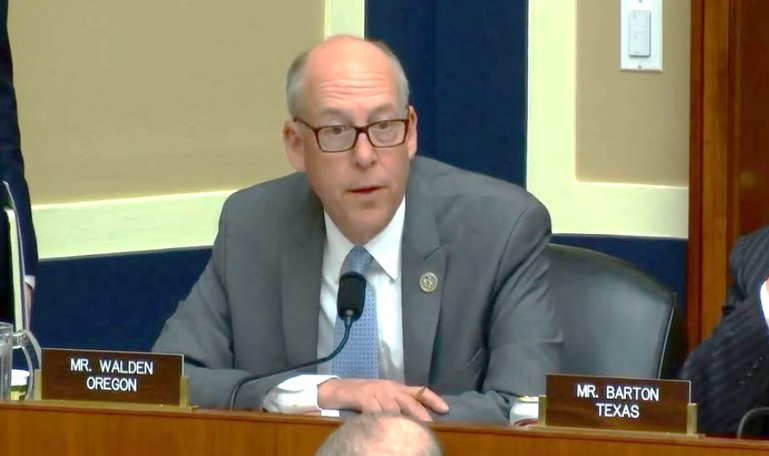“We are hostages in our own homes.” That’s how Jennifer, a mother from Medford, described to me what communities in Southern Oregon and across the West are enduring yet again: a summer filled with smoke and fire.
Jennifer continued in her letter to me saying, “my children are robbed of being able to play outside. I absolutely hate that nothing is done to prevent this from happening.”
As I traveled throughout Southern Oregon in recent weeks, I met with concerned citizens, veterans, small business owners, and community leaders who had the same deep frustration as Jennifer. I share that frustration as well, as do people I meet with throughout our state.
Year after year, we are suffering from the effects of catastrophic wildfires and the smoke that comes with it. Our airsheds are choked and smoke blankets our communities, giving us some of the worst air quality in the world this summer.
We cannot accept this as our “new normal.” The only way to fix this problem that impacts us all is to fix the broken policies that have led to these overstocked forests and unnaturally catastrophic wildfires in the first place.
As Chairman of the Energy and Commerce Committee, I announced that we are going to hold a hearing this fall to examine the health consequences of the smoke from these fires and explore the various contributing factors, from climate change to overstocked forests. This hearing will serve as an opportunity to address the current state of our forests and what policy changes need to be made.
In parts of Oregon, our forests are packed with nearly 1,000 trees per acre on land that historically had 20 trees per acre — a clear sign that our forests are overstocked and need to be restored to their natural balance.
Moreover, a recent study by The Nature Conservancy, Forest Service, and others found that fuel management projects can reduce the size and intensity of fire up to 70 percent and reduce carbon emissions from the fire by up to 85 percent.
That’s why we need to give our forest managers additional tools to remove the excess fuel loads that have built up in our forests.
To help mitigate the risk of these fires, we need to speed up and increase our work in the woods.
And after fires, we should remove the burned, dead trees — where appropriate and while they still have value — and use the proceeds to pay for replanting a new, healthy forest for the next generation. That’s called stewardship, and that’s what happens on private, county and state lands. These needed reforms were included in the Farm Bill that passed the House earlier this year with my support. Unfortunately, the Senate’s version of the legislation failed to include these common-sense changes.
As negotiations on the final bill proceed, it’s time for the Senate to act and include these needed provisions.
The Farm Bill builds on the progress we made toward fixing federal forest policy earlier this year when we passed into law the most significant reforms in over a decade.
We provided the Forest Service with tools for rapid implementation of wildfire resiliency and hazardous fuels reduction projects.
And we took steps to fix fire borrowing starting in 2020, which will help end the vicious cycle of depleting resources for fire prevention to pay for fire suppression.
This progress is important, but we have a long way to go. Nearly 30 years of poor management have created a tinderbox in our federal forests that ignites every summer. It will take significant time and effort to restore balance to our public lands.
But we must push forward. Working together with people on the ground in Oregon, my colleagues in Congress, and the administration, I am confident that we can continue moving in a better direction for communities across the West, our airsheds, water sheds, and federal lands.
I’ve heard the same message loud and clear from Oregonians like Jennifer no matter where I go in our state: something needs to change in the way we manage our forests. I am committed to making that change happen.
Disclaimer: Articles featured on Oregon Report are the creation, responsibility and opinion of the authoring individual or organization which is featured at the top of every article.


